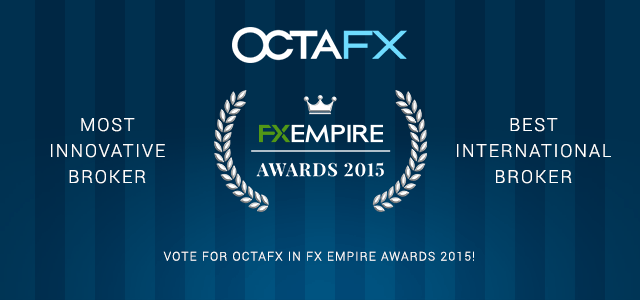Contents
Any future contract is always made between two persons. But clear corporation always takes opposite Java Developer Jobs & Positions position against any order. Thus, there is always an opposite party by default in each trade.
- It is a common thought of individuals to assume that derivatives affect the share prices.
- A futures contract is a legally binding agreement between two parties to buy or sell an underlying asset at a set price on a future date, which is also called the expiry date.
- When it comes to studying markets, Naresh loves decoding stock prices, analyzing data, and understanding market trends.
- Contracts on NSE have a 1 month, 2 month and 3 month expiry cycles which expire on the last Thursday of the month.
- On the other hand, if you buy put options you get the right but not obligation to sell the asset at predefined price and quantity at or on the future date.
HNIs face new dos & don’ts on foreign betsTill now, a person could invest up to 10% in a foreign ‘holding’ or an unlisted investment company – often created by a group of HNI investors coming together. This investment vehicle in turn traded in financial derivatives and cryptos which are disallowed under the LRS. Trading in the derivatives markets is more or less the same as dealing in the cash segment of the stock market. You will require a trading account to deal in derivatives. It is documented in management literature that swaps with reference to financial market has two meanings. First, it is purchased and simultaneous forward sale or vice versa.
This is because the entire process is interlinked and hence co-dependencies are created. In any case, this impact in indirect and fractional in nature as compared to the direct impact of the dependency of the derivatives. Thus, the derivatives are the dependent factors that can have fruitful benefits within boundaries of certain calculated risks. Market efficiency – Derivative tradinginvolves the practice of arbitrage which plays a vital role in ensuring that the market reaches equilibrium and the prices of the underlying assets are correct.
We move on to the world of derivatives – considered one of the most complex financial instruments. We collect, retain, and use your contact information for legitimate business purposes only, to contact you and to provide you information & latest updates regarding our products & services. We do not sell or rent your contact information to third parties.
The last amendment was made in 2017 by the Finance Act. The leverage provided by derivatives only requires a trader to pay 2 to 10 percent of the margin amount. If the value of the asset keeps dropping then covering the margin amount can lead to huge losses. Since the value of a derivative is based on the value of one or more underlying asset.
Derivatives trading in India – examples, strategies and risks
The derivative contracts should be mentioned on the balance sheet. Let’s understand more about how derivatives function in derivative markets through an example. Financial markets which trade in derivatives are known as derivative markets.
Maintenance margin is a certain portion of the initial margin for a position. If the margin balance in the account goes below such margin, the trader is asked to deposit required funds or collateral to bring it back to the initial margin requirement. World over, exchange traded derivatives are slowly eating into the traditional trading platforms, especially the spot & OTC (Dr. K.S. Jaiswal & Dipti Saha).
What are the 5 derivatives?
Five of the more popular derivatives are options, single stock futures, warrants, a contract for difference, and index return swaps.
Through National stocks Exchange , Bombay Stocks Exchange in stocks. Similarly, if your interest is to trade in commodities, MCX and NCDEX are there. While NCDEX stands for the National Commodity and Derivatives Exchange. However, if you are willing to trade in currency, you can do it over NSE-SX, MCX-SX. If your interest is to trade in bonds again it’s also possible through NSE platform.
It is defined as the contract between buyer and seller agreeing to future delivery of any interest bearing underlying asset. It is defined by Wikipedia as the derivative instrument in which the underlying asset has the right to pay or receive money at a given rate of interest. In simple avatrade broker review words, it is a financial instrument based on an underlying, the value of which is impacted by any change in the interest rates. However, when the larger picture is considered; the share prices affecting a large number of derivatives will, in turn, affect the share market indirectly.
It is the ideal solution for anyone looking for a practical primer on derivative markets and contracts. Forward contract derives the values from the underlying spot prices. Under these contracts, two parties enter into an agreement to trade at some point in future. Also, there is no exchange of money during the time of entering the agreement. Future and forward contracts are derivatives market instruments in India.
What are the different types of Derivatives?
They lead to more stability in the fluctuation of prices. Further, no assets need to be owned directly by either party which is often the case for new business ventures. Risk is transferable –Derivatives allow investors, businesses and others to transfer the risk to other parties. The relationship between futures price and spot price can be summarized as what is known as cost of carry. This measures the storage cost plus the interest that is paid to finance the asset less the income earned on it.
Are Derivatives low risk?
Derivatives are used for hedging to lower risk exposure on various underliers. however, trading alone in derivatives involve risk such as market volatility, counter-party risks, interconnection risks, and the risk of liquidity.
This is how a margin trader, who is basically a speculator, benefits from trading in the derivative markets. The OTC market is largely run on trust, but what if someone wants to participate in derivatives trading in a relatively safer environment? Investors and markets conventionally have considered to commercial rating services for assessment of the credit and investment risk of issuers of debt securities. Some firms issue ratings on a company’s securities which reflect an evaluation of the exposure to derivative financial instruments to which it is a party. The solvency of each party to a derivative instrument must be evaluated independently by each counterparty. In a financial derivative, performance of the other party’s obligations is dependent on the strength of its balance sheet.
Different Types of Derivatives
European style options can be used only on the maturity date of the option, also known as the expiry date. American style options can be exercised at any time before and on the expiry date. It can be a stock, bond, currency, interest rate, index, or commodity on which F&O are based. The markets for derivatives is different in terms of the working system and risk.

Where the vanilla type is the most basic and standard type of interest rate derivative with maximum liquidity, Quasi vanilla is the next level after vanilla type and is fairly liquid. The exotic derivatives are the most illiquid, more complex compared to the commonly traded vanilla derivatives. Companies say such derivatives play a big part in helping them to provide consumers with stable prices.
Open Free Demat Account
OPTIONSOptions are rights but not obligation available to the buyer of the same, to purchase or sell an asset. It means that the buyer of the option can exercise his option but is not bound to do so. FORWARDA forward contract is a customized contract between two entities, where settlement takes place on a specific date in the future at today’s pre-agreed price. Forwards are contracts customizable in terms of contract size, expiry date and price, as per the needs of the user . Now, in order to trade in futures one has to pay an initial margin.
Advantages of derivatives
Traders purchase derivates as a hedge against risk exposure
They function as a price discovery mechanism like, the spot price of futures contracts are often used to determine commodity price trends
Derivatives contribute to market efficiency by eliminating arbitraging opportunities
These highly leveraged contracts allow investors to magnify portfolio exposure
Futures contracts are special types of forward contracts in the sense that the former are standardized exchange-traded contracts. There are several types of financial derivatives available in the market. Each of these derivatives serves specific purposes and comes in very handy for experienced traders.
Underlying assets refer to the real financial assets upon which the price of a derivative is based. Thus, the price of the derivative is dependent on the price of the underlying. Any changes in the price of the underlying will be reflected in the price of that corresponding derivative. They are used to manage financial risk by allowing investors to take opposite positions in a single transaction, also known as hedging.
TYPES OF DERIVATIVES CONTRACTS
You can wait until the contract is scheduled to expiry to settle the trade. In such a case, you can pay the whole amount outstanding, or you can enter into an opposing trade. For example, you placed a ‘buy trade’ for Infosys futures at Rs 3,000 a week before expiry. To exit the trade before, you can place a ‘sell trade’ future contract.

Normally we are aware of stocks which are traded directly in the market and are affected by market and economic conditions. However, derivatives are instruments which do not have a value of their own. They are like a bet on the value of existing instruments like stocks or index. Thus, derivatives as the name suggests are indicative of the price of their underlying security as they help you take a position on your opinion of its future price. When you sell a call or put options we call it as writing options.

Even you can incur the loss with the execution of derivatives trade. A high trading expertise and experience is mandatory with high-risk tolerance. As soon the margin falls below the maintenance margin, you need to deposit cash or collateral to bring the account back to the initial margin.
Swaps are widely regarded as the first modern example of OTC financial derivatives. All OTC derivatives are negotiated between a dealer and the end user or between two dealers. Inter-dealer brokers also play an important role in OTC derivatives by helping dealers identify willing counterparties and compare different bids and offers. In general, hedging is done by either producers or users of the commodity or financial product underlying that contract. Their goal is to protect their profit or limit their expenses. The amount that must be deposited into the margin account at the time when a futures contract is entered into is called initial margin.
To better understand a financial derivative, let us take an example of Company ABC. You are certain that the share prices of Company ABC are likely to go up. You can buy a derivative contract by placing an accurate bet to leverage the price movement. what is sma in forex Furthermore, derivative contracts can also act as a cushion for your investment to limit losses. In Options contract, the buyer and seller of contract agree to transact in the underlying asset on a future date at a predetermined price.
